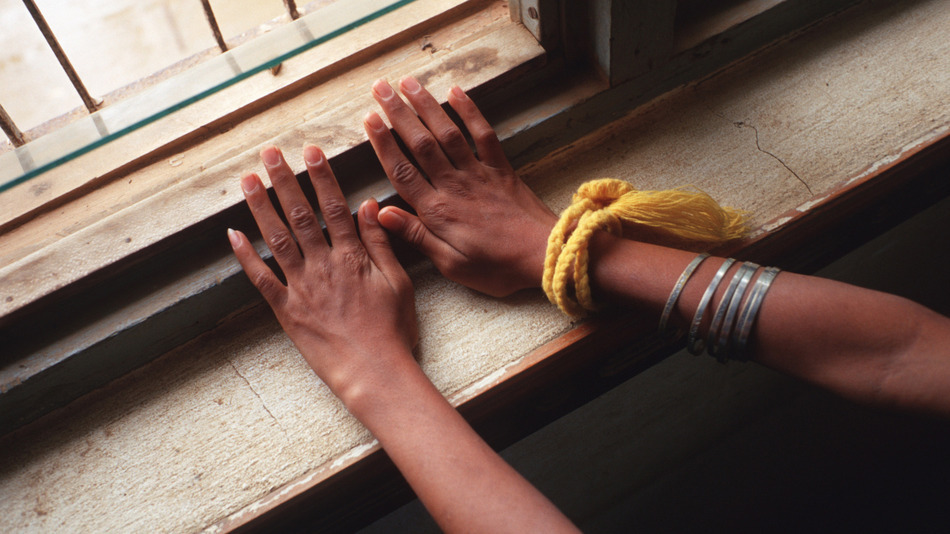Thursday is World Day Against Trafficking in Persons, a day to spread awareness of labor trafficking and sexual exploitation around the world.
Trafficking in persons — also known as human trafficking or modern slavery — is described by the U.S. Department of State as the "act of recruiting, harboring, transporting, providing or obtaining a person for compelled labor or commercial sex acts through the use of force, fraud or coercion."
Human trafficking is a prevalent practice globally, with instances of exploitation and human rights violations being reported in the majority of nations each year. Still, it's very rarely talked about publicly.
"Slavery never ended," Terry FitzPatrick, senior communications director of advocacy organization Free the Slaves, tells Mashable about human trafficking. "It was outlawed, but it was never eradicated."
This global issue shouldn't be swept under the rug any longer. Educate yourself on human trafficking with these six facts, and learn how you can enact actual, tangible change for those impacted.
1. There are an estimated 21 million people in forced or coerced human trafficking worldwide.
Of those 21 million individuals, about 68% are subjected to forced labor, while 22% are subjected to forced sexual exploitation.The remaining 10% are in forms of state-imposed forced labor — working in prisons under conditions that violate labor standards, or forced to participate in rebel armed forces.
To put this in context, 12.5 million Africans were enslaved and taken to America during the transatlantic slave trade, which lasted from 1525 to 1866. Though the 21 million individuals actually represent a lower percentage of the global population than the time of the slave trade, it's still a staggering reality.
However, today's numbers could be even higher, because the number of people in modern slavery is so hard to track.
2. Forced labor generates $150.2 billion per year in illegal profits globally.
According to the U.S. Department of State, two-thirds of those profits are generated by commercial sexual exploitation. The other third is generated by forced labor exploitation.
This underground industry is booming, which makes it especially disturbing and dangerous.
3. Trafficking in all forms mostly impacts women and girls.
Women and girls make up 55% of those forced or coerced into some form of modern slavery, as compared to 45% men and boys. It's especially troubling that women make up 98% of individuals forced into sexual slavery.
4. Last year, instances of human trafficking were reported in all 50 U.S. states and Washington D.C.
In 2014, the National Human Trafficking Resource Center hotline received multiple reports of human trafficking cases from every state within the U.S. California had the most complaints, with 223 cases reported in 2014.
5. Sex trafficking is by far the most prevalent form of human trafficking in the U.S.
Of the 1,345 instances of human trafficking reported to the National Human Trafficking Resource Center, 973 of those instances were related to sex trafficking.
6. India has the largest number of individuals in human trafficking globally.
An estimated 14 million individuals in India are living through this form of modern day slavery. This means individuals from India represent more than half of those in modern slavery worldwide.
What you can do to help
In an attempt to spread awareness on World Day Against Trafficking in Persons, the United Nations has kicked off a social media campaign in solidarity with human trafficking survivors under the hashtag #igivehope. The UN is encouraging social media users to post photos of themselves making a heart with their hands in order to spread awareness of trafficking.
While awareness is definitely valuable when it comes to an under discussed issues, enacting tangible change is what survivors and those living in modern slavery need. And posting a simple selfie with the message of hope may a doable gesture for the masses, but it doesn't educate or enact that change.
"Awareness is a critical step, but it's not the only step," FitzPatrick says. "Awareness doesn't free anybody."
To do something about human trafficking, consider one (or all) of the following avenues to advocate meaningfully.
Donate to organizations and social funds invested in the cause.
Organizations like the United Nations Voluntary Trust Fund for Victims of Trafficking in Persons, the Polaris Project and Free the Slaves all value public contributions.
Single-handedly tackling an issue like human trafficking is unrealistic for the average social media user, but making contributions to campaigns working on the ground is a way to support those in need.
Support legislation fighting trafficking.
FitzPatrick recommends educating yourself on legislation currently pending in Congress, like the Business Supply Chain Transparency on Trafficking and Slavery Act of 2015. This legislation would require large corporations to publicly disclose what anti-human trafficking and anti-child labor steps they are taking in their businesses.
Writing your congressional representatives about legislation you support is a way to bring the issues that matter to you to someone in political power.
Be a conscious shopper.
Support slave-free trade by buying locally and knowing how most of the products you buy are manufactured and sourced. FitzPatrick recommends using sites like KnowTheChain to track a corporation's policies.
Fuente: mashable.com
